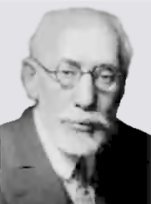|
變異的性行為
|
|
歷史背景 2:
“性副態”
|
|
 |
|
弗裏德瑞奇S.克蕘斯(Friedrich
S. Krauss,1859
-1938)
奧地利人種學家,撰造了術語“性副態”。他在巴爾幹半島收集了有關性的民俗學素材,編輯出版了年鑒《人類繁衍》(1904-1913),而且是由赫希菲爾德于1918年創立的第一本《性學雜誌(Zeitschrift
für
Sexualwissenschaft)的合編者。 |
|
Friedrich S. Krauss
(1859 -1938)
an Austrian
ethnologist,
coined the
term “paraphilia“. He collected erotic folklore in the Balkans, edited the journal “Anthropophyteia” (1904-1913) and was co-editor of the first Journal of Sexology (Zeitschrift für Sexualwissenschaft), founded by
Magnus Hirschfeld in 1908. |
|
|
當醫學專業人員設法去找到科學的,即更新的、純粹出於描述性的和道德中立的表達術語來替換"倒錯(perversion)"、"失常(aberration)"和"偏離(deviation)"時,他們最終採納了術語“性副態”(paraphilia[1],希臘語para:在……近旁;在……旁邊;philia:愛)”。但是,從邏輯上說,這種術語表達換湯不換藥:從定義上看,性副態仍然是次等的性愛。這個術語仍然假定和暗示存在“真實的”、“真正的”、“自然的”和“正確的”性愛(philia,愛好、偏好、嗜好),似乎性愛在其之旁、之後和之下有次等的性愛,正像“真正的”醫生之後和之下還站著輔助醫務人員一樣。從科學的原則說來,這是無根無據的假定。那些使用這個術語的人暗示,他們瞭解性行為的“真正的”含義和目的,而且他們主張權威人士來改正凡是不符合他們認為理想的東西。從最好的情形看,他們是為人所不知曉的理論家。
的確,各種各樣的“性副態”的定義沒有任何一個恰好達到客觀的基本標準。這些定義要麼是說教的和無知的,要麼是無法原諒地含混不清的,甚或是類語疊用的。例如:一些學者說“非典型的(atypical)和偏激的(extreme)性行為”,其他學者提到“由性對象導致的性喚起,或對互惠的愛慕的性活動可能起干擾作用的性刺激所產生的性喚起”。還有其它的陳述,說什麼“性副態是以被認為偏離行為為特徵的性衝動紊亂”,或者他們直接了當地申明“性副態是像性偏離行為一樣顯然而然的精神紊亂”。後兩個定義類語疊用,因而尤其沒有什麼價值[“性副態(paraphilia)是性紊亂並因而是性偏離”]。這就像是說“私通的戀愛事件表明其本身為通姦行為”。這樣的空洞套話在任何科學論文裏都是毫無價值的。它們什麼也沒有解釋清楚,而且為所有類型的武斷說辭開了方便之門。然而,剩下來的定義也並不那麼合適。許多人類的行為是未顯示精神紊亂狀態的“無常規的(atypical)”行為:攀登高聳的山峰、騎車環遊世界、進入修道院和發誓不說話、收集精美的頂針,許多許多其它的活動等等。詞語“偏激的(extreme)”是一個相對的術語,它從一個說話者到另一個說話者和從一種背景到另一種背景會有不同的具體含義。“互惠的愛慕的性活動”是一個當代西方中產階級的文化理想,而且從時空上看,決不普遍。另一方面,許多所謂的性副態活動可能非常好地包容了互惠互利和愛情。簡而言之,術語“性副態”與這些學者想要替換的那些術語一樣,恰恰也是意識形態的和科學啟蒙之前的那種表述。
|
|
Variations in Sexual Behavior |
|
Historical Background 2: "Paraphilia" |
When the medical profession tried to find a scientific, i.e. purely descriptive, morally neutral expression to replace the judgmental “perversion”, “aberration”, and “deviation“, it finally adopted the term ”paraphilia” (gr. para: beside, and philia: love). However, from the standpoint of logic, this is no improvement: A paraphilia remains, by definition, a second-rate love. The term still assumes and implies the existence of a "real", "true","natural", and "correct" love (philia) which has sisters of minor rank standing beside, behind, or below it, just as the paramedical personnel stands behind or below the "real" doctor. Scientifically speaking, this is an unwarranted assumption. Those who use the term imply that they know the “true” meaning and purpose of sexual behavior, and they claim the authority to correct whatever falls short of what they consider ideal. At best, they are ideologues without being aware of it.
Indeed, none of the various definitions of “paraphilia” meets even the most basic standard of objectivity. They are either moralistic and naïve or inexcusably vague or even tautological. For example: Some writers speak of “sexual behavior that is atypical and extreme”, others refer to “arousal by sexual objects or situations which may interfere with the capacity for reciprocal affectionate sexual activity”. Still others state that “paraphilias are sexual impulse disorders characterized by behaviors that are considered deviant”, or they proclaim categorically that “paraphilias are psychiatric disorders that are manifested as deviant sexual behavior”. The last two definitions are tautological and especially meaningless (“paraphilias are disorders and therefore deviant”). This is like saying that “an extramarital affair manifests itself in adultery” or that “poverty is due to a lack of money”. Such empty formulas are useless in any scientific discourse. They explain nothing and are open to all sorts of arbitrary interpretations. However, the other definitions are not much better: Many human behaviors are “atypical” without indicating a psychiatric disorder: Climbing very high mountains, riding a bicycle around the world, entering a monastery and taking a vow of silence, collecting porcelain thimbles, and many others. The word “extreme” is a relative term which changes its concrete meaning from one speaker and context to another. “Reciprocal affectionate sexual activity” is a cultural ideal of the modern Western middle classes and by no means universal, either historically or geographically. On the other hand, many so-called paraphilic activities can very well include reciprocity and affection. In short, the term “paraphilia” is just as ideological and prescientific as those it was meant to replace. |